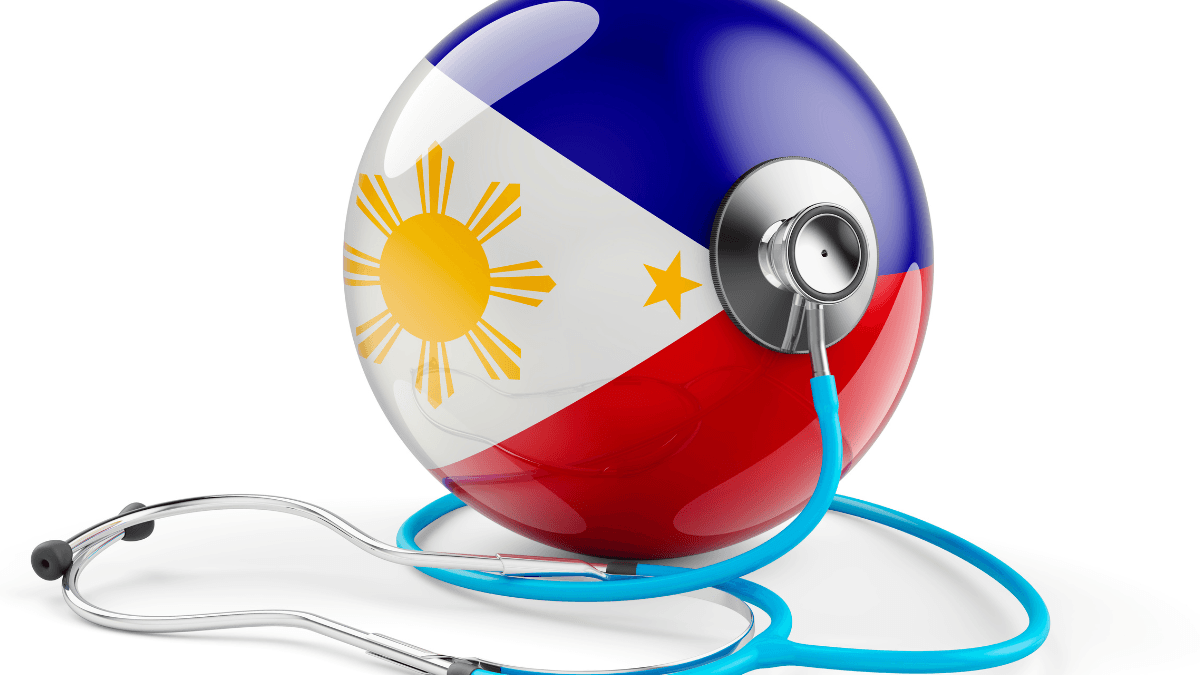
☝️ At a glance
- Clinical pathways include specializations like MD/MS in Pediatrics, Surgery, Dermatology, and super-specializations like Cardiology and Neurology.
- Non-clinical careers offer roles in medical writing, healthcare management, public health, research, forensic medicine, sports medicine, and telemedicine.
- International opportunities through exams like USMLE, PLAB, and AMC allow practice in the USA, UK, and Australia with global specializations and fellowships.
- Higher education options like diploma courses and fellowships in Anesthesia or Dermatology provide specialized expertise.
- Entrepreneurship and emerging fields like health-tech startups, AI in healthcare, and biotechnology offer innovative career paths.
Completing an MBBS degree is one of the most transformative achievements in the field of medicine, opening up a lot of courses after MBBS for aspiring doctors. After completing MBBS, you will be able to pursue diverse pathways in clinical practice, public health, or non-clinical fields. If you are wondering what to do after MBBS in India or abroad, there are options after MBBS in higher studies, such as MD/MS or specialized diploma courses, which are some of the most sought-after avenues. For MBBS graduates aiming for a global career, exams like NEET PG, USMLE, and PLAB can help you explore opportunities in the medical field internationally.
Additionally, non-clinical fields like healthcare management, research, and medical writing provide alternatives for those wanting to move beyond traditional clinical roles. If you want to make an impact in healthcare, this is the time to explore your options and chart the best path forward.

Become a global doctor with MBBS abroad!
Studying abroad can be affordable and stress-free with futureMBBS:
- World-recognized universities with English-taught programs
- On-site support in partner university cities
- Guaranteed placements & internships for hands-on experience
From selecting universities and supporting you with the application process to orientation and finding accommodation – we are at your side.
Why is career planning crucial after MBBS?
Explore diverse courses after MBBS: Career planning helps you identify pathways within clinical and non-clinical fields, ensuring you choose a direction that aligns with your passion and skills.
Pursue specialized roles: After MBBS, you can opt for advanced courses like MD/MS, diploma courses, or international certifications, enhancing your expertise in the field of medicine.
Enhance job prospects: Higher qualifications after completing MBBS unlock better opportunities, higher salaries, and greater job security.
Gain global exposure: Career planning allows MBBS graduates to consider international opportunities through exams like USMLE, PLAB, or pursuing global fellowships in the medical field.
Achieve long-term satisfaction: Aligning your career goals with your personal interests ensures a fulfilling and rewarding professional life.
Navigate non-clinical opportunities: For those considering non-clinical alternatives after MBBS, career planning opens doors to healthcare management, public health, medical writing, and research roles.
Stay ahead in a competitive field: Planning helps you understand what to do after MBBS to remain competitive in the evolving landscape of medicine and healthcare.
Contribute to healthcare innovations: With proper guidance, you can pursue a career path that allows you to make meaningful contributions to the field of medical science and healthcare.

Study medicine abroad with 100% support!
futureMBBS offers full support to make your dream of studying medicine abroad a reality.
- Hassle-free admission guidance
- Fast-tracked visa processing
- Post-arrival support, including accommodation assistance
Traditional clinical pathways for MBBS graduates
1. General practice
Starting as a general practitioner is one of the most common career courses after MBBS. You can deliver primary healthcare, diagnose, and manage a wide range of medical conditions, making it a vital role in the medical field.
2. Specialization through MD/MS
Specializing in a field of medicine or surgery is a preferred option for MBBS graduates. Pursuing MD/MS after completing MBBS in India or abroad allows you to become an expert in fields such as:
Pediatrics
General surgery
Radiology
Dermatology
Specialization | Field | Duration |
|---|---|---|
MD in Pediatrics | Child Healthcare | 3 Years |
MS in Orthopedics | Bone and Joint Care | 3 Years |
3. Super-specialization after MD/MS
Super-specialization through DM (Doctorate of Medicine) or MCh (Master of Chirurgiae) is the next step for MBBS graduates seeking expertise in areas like:
Cardiology
Neurology
Gastroenterology
These advanced courses after MBBS offer unparalleled opportunities to excel in the medical field.
Diverse career courses after MBBS
After completing an MBBS, there are numerous diverse career options available beyond traditional clinical practice. Exploring these opportunities can help you align your aspirations with your interests.
Medical research
Engage in innovative research in fields like regenerative medicine, cancer biology, and nanomedicine. This path allows MBBS graduates to contribute to advancements in the medical field and the development of groundbreaking treatments.
Public health and epidemiology
Pursuing a Master of Public Health (MPH) is a popular choice after MBBS in India and abroad. It opens doors to impactful roles such as:
Public Health Advisor
Epidemiologist
Community Health Specialist
Healthcare management
Specialized courses after MBBS, like an MBA in Healthcare Management or a Master’s in Hospital Administration (MHA), equip graduates with the skills to lead hospitals and healthcare organizations, blending medical expertise with managerial acumen.
These options in the medical field highlight non-clinical paths for those looking to make an impact in healthcare.
Non-clinical career options after MBBS
For MBBS graduates, non-clinical career options after MBBS open doors to diverse roles beyond traditional clinical practice. These paths allow you to explore innovative areas in the medical field and make impactful contributions.
Medical writing and journalism
If you have strong communication skills, medical writing is one of the top options after MBBS. You can create research papers, write medical content, or contribute to healthcare journalism. This is a rewarding career choice for those who want to bridge the gap between medicine and public understanding.
Forensic medicine
Forensic medicine is a field of medicine that combines law and medical science. As an MBBS graduate, you can become a forensic pathologist or a medico-legal advisor, assisting in legal investigations and solving medical-legal cases.
Sports medicine
Sports medicine is a growing career option for MBBS graduates interested in working with athletes. This field focuses on the prevention and treatment of sports injuries, offering opportunities in India and abroad.
Telemedicine and health technology
With advancements in technology, telemedicine has emerged as one of the most promising career options after MBBS. You can provide virtual consultations or work in health tech startups revolutionizing healthcare delivery. This is an innovative and impactful path after completing MBBS.
Higher education opportunities after MBBS

After completing MBBS, higher education opportunities provide avenues for specialization, skill enhancement, and global exposure. These paths are perfect for those looking to explore advanced roles in the medical field.
Diploma courses
Diploma programs are excellent after MBBS for graduates who wish to specialize without committing to the longer MD/MS track. These courses after MBBS offer focused training in specific fields, enabling MBBS graduates to quickly enter the workforce with specialized skills. For instance, a Diploma in Anesthesia focuses on anesthesia techniques and patient management during surgeries, while a Diploma in Dermatology trains you in diagnosing and treating skin conditions. Both programs typically span two years and are widely recognized in India and abroad.
Diploma program | Field | Duration |
|---|---|---|
Diploma in Anesthesia | Anesthesia | 2 Years |
Diploma in Dermatology | Skin care | 2 Years |
Fellowships and certifications
Fellowships and certifications are among the best courses after MBBS for those aiming to gain advanced expertise. Fellowships in fields like clinical biomarkers, regenerative medicine, or medical imaging offer specialized training and often include international exposure. These programs are ideal for MBBS graduates seeking to work at the forefront of medical innovation, blending research and clinical practice.
International opportunities after MBBS
The completion of MBBS opens a world of international opportunities, allowing graduates to explore advanced career paths, gain global exposure, and contribute to cutting-edge innovations in medicine. These pathways range from clearing licensure exams to pursuing super-specializations and emerging career options in healthcare and related fields.
Licensure Exams
To practice medicine in countries like the USA, UK, or Australia, MBBS graduates must clear specific licensure exams. These exams assess medical knowledge, clinical skills, and practical application, ensuring candidates meet international healthcare standards.
USMLE (United States Medical Licensing Examination): Required for practicing in the USA, it consists of multiple steps focusing on medical sciences, clinical knowledge, and practical skills.
PLAB (Professional and Linguistic Assessments Board): Mandatory for international medical graduates (IMGs) aiming to work in the UK, this two-part exam evaluates communication and clinical abilities.
AMC (Australian Medical Council): This exam allows MBBS graduates to practice medicine in Australia after proving their competency through written and clinical assessments.
NExT (National Exit Test): Introduced as a mandatory exam in India for MBBS graduates, the NExT exam assesses medical knowledge and clinical skills. Clearing this exam can also be required for pursuing further studies or practicing abroad in countries that recognize the exam.
Exam | Region | Purpose |
|---|---|---|
USMLE | USA | Medical Licensure |
PLAB | UK | International Practice Approval |
AMC | Australia | Medical Practice Competency |
NExT | India | Exit Test for Medical Graduates |
Global specializations
MBBS graduates can pursue advanced specializations abroad, delving into cutting-edge fields like robotic surgery, molecular imaging, and advanced oncology. These areas not only enhance expertise but also provide opportunities to work in technologically advanced healthcare systems.
Emerging career options in medicine
Biotechnology and pharmaceuticals
The integration of medicine with biotechnology offers MBBS graduates the chance to participate in drug discovery, medical device innovation, and the development of new treatment methodologies. This field is rapidly expanding, providing lucrative opportunities in pharmaceutical companies and research organizations worldwide.
Artificial intelligence in Healthcare
AI is revolutionizing the medical field by enabling diagnostics, predictive analytics, and personalized treatment plans. MBBS graduates can work on developing AI algorithms or managing their application in clinical practice, significantly improving patient care and operational efficiency.
Clinical trials and regulatory affairs
This path involves overseeing the safety and efficacy of new drugs and treatments. MBBS graduates can contribute to clinical trials, ensure compliance with regulatory standards, and work with pharmaceutical companies or global regulatory bodies.
Entrepreneurship in Healthcare
Start your own practice
For those seeking autonomy, establishing a private clinic is one of the most rewarding options after MBBS. This allows you to build a patient base, deliver personalized care, and create a lasting impact in your community.
Health-tech startups
The rise of health technology has created a wealth of opportunities for MBBS graduates interested in entrepreneurship. Innovations in telehealth, wearable devices, and personalized medicine have transformed patient care, making this a promising area for aspiring entrepreneurs
Specialized career options after MBBS abroad
Advanced research
Countries like the Czech Republic, Lativa, Hungary and Slovakia offer unparalleled opportunities for research in cutting-edge fields such as nanomedicine, cancer biology, and regenerative medicine. Engaging in advanced research helps MBBS graduates contribute to global medical advancements while enhancing their professional profiles.
Molecular biology and genetics
Specializing in genetics enables MBBS graduates to explore precision medicine, genetic counseling, and personalized treatments. This field is vital in understanding complex diseases and tailoring therapies to individual genetic profiles.
Alternative career options
Medical illustration
For those with artistic talent, medical illustration combines creativity with medical knowledge to create educational visuals for textbooks, journals, and patient education. This niche career bridges art and science effectively.
Medical education and teaching
Becoming a professor or educator in medical institutions is a fulfilling career path. Teaching allows MBBS graduates to share their expertise and shape the next generation of medical professionals, contributing to the future of healthcare.
Medical tourism consultant
This emerging field involves guiding international patients to access high-quality healthcare services across borders. As a medical tourism consultant, MBBS graduates can bridge the gap between patients and global healthcare providers, ensuring seamless experiences.
Factors to consider before choosing a career path
Choosing the right career path after completing MBBS is a critical decision that shapes your professional future. The medical field offers a wide array of career options, ranging from clinical practice to research and healthcare innovation. To make the best decision, you need to consider several key factors that align with your strengths, interests, and long-term goals.
1. Interests and strengths
Your personal interests and strengths within the medical field should be a primary consideration when choosing a career. During your MBBS studies, you may have discovered which areas excited you the most—whether it's patient care, research, or healthcare management. If you are passionate about patient interaction and hands-on care, clinical specialties like general practice, pediatrics, or surgery might suit you. On the other hand, if you enjoy analytical thinking and problem-solving, non-clinical options like medical research, public health, or healthcare administration may be more rewarding. Understanding where your strengths lie and what excites you will help you pursue a fulfilling career in the medical field.
2. Global demand and opportunities
Another important factor is the global demand for professionals in specific fields. Certain specialties such as cardiology, dermatology, and orthopedics are in high demand worldwide. Additionally, with globalization, many countries require medical professionals for various roles. For instance, countries like the USA, UK, Australia, and Europe offer opportunities for MBBS graduates who clear the respective licensure exams, such as USMLE, PLAB, AMC, or the NExT exam for India. By choosing specialties that are in high demand internationally, you increase your chances of working abroad and gaining international experience.
3. Long-Term Goals
Lastly, consider your long-term professional and personal goals. Do you see yourself specializing in a particular field and continuing with further studies, or would you prefer a career in medical education, entrepreneurship, or health technology? Also, evaluate the lifestyle implications of various career paths, as some may involve long shifts or a demanding workload. Balancing professional aspirations with personal goals is crucial for sustained job satisfaction and career success.
By considering your interests, the global demand in healthcare, and your long-term goals, you will be well-equipped to choose the best career path after MBBS.
Conclusion
The courses after MBBS are extensive, ranging from clinical practice to non-clinical fields and international opportunities. By identifying your interests, exploring available courses, and leveraging professional guidance, you can pave the way for a fulfilling medical career.
At futureMBBS, we help aspiring doctors make informed decisions about their careers. Whether you aim to pursue NEET PG, study abroad, or explore non-clinical avenues, our experts are here to guide you. Book a free consultation today to unlock your potential and achieve your dreams!
Your medical career abroad starts here!
Thinking of pursuing MBBS abroad? Don’t just dream it, do it!
Start your MBBS journey!Read more similar articles:
FREQUENTLY ASKED QUESTIONS
FAQs about “career options after MBBS"
What is the best career after MBBS?
The best career after MBBS depends on your interests. Clinical practice, higher studies (MD/MS), medical research, or non-clinical roles like healthcare management and medical writing are popular choices.
Which job is highly paid after MBBS?
Specializations like cardiology, neurosurgery, dermatology, and orthopedics offer high pay. Roles in medical research and healthcare management can also be lucrative.
What after MBBS if not PG?
Non-PG options include medical writing, healthcare management, public health, telemedicine, medical education, or starting your own practice.
Can I get 100% job after MBBS?
While securing a job is highly likely, it depends on specialization, exams (like NEET PG), and location. Completing relevant exams and staying updated improves job prospects.
How can NEETsheet by futureMBBS help in NEET preparation?
NEETsheet by futureMBBS offers comprehensive support for NEET UG preparation, including live classes, expert resources, and personalized guidance from India's top edtech teachers.




